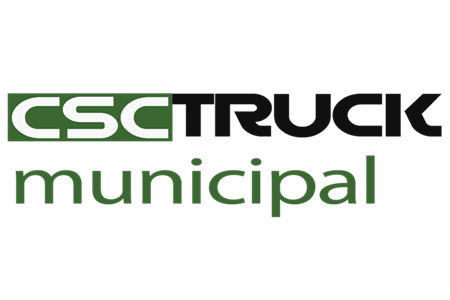Introduction
Garbage collection is a vital public service that ensures the cleanliness and hygiene of our communities. One of the key aspects of efficient waste management is the routing and scheduling of garbage trucks. Behind the scenes, intricate algorithms and planning processes come together to optimize the collection routes, minimize costs, and reduce environmental impact. In this article, we will delve into the world of garbage truck routing and scheduling, exploring how it works and the benefits it brings to our cities.
Understanding Garbage Truck Routing and Scheduling
Garbage truck routing and scheduling involve determining the most efficient routes for garbage trucks to collect waste from various locations within a given area. The primary goal is to minimize travel time, reduce fuel consumption, and optimize the allocation of resources while ensuring timely waste collection. Achieving these objectives requires the use of advanced technologies and sophisticated algorithms.
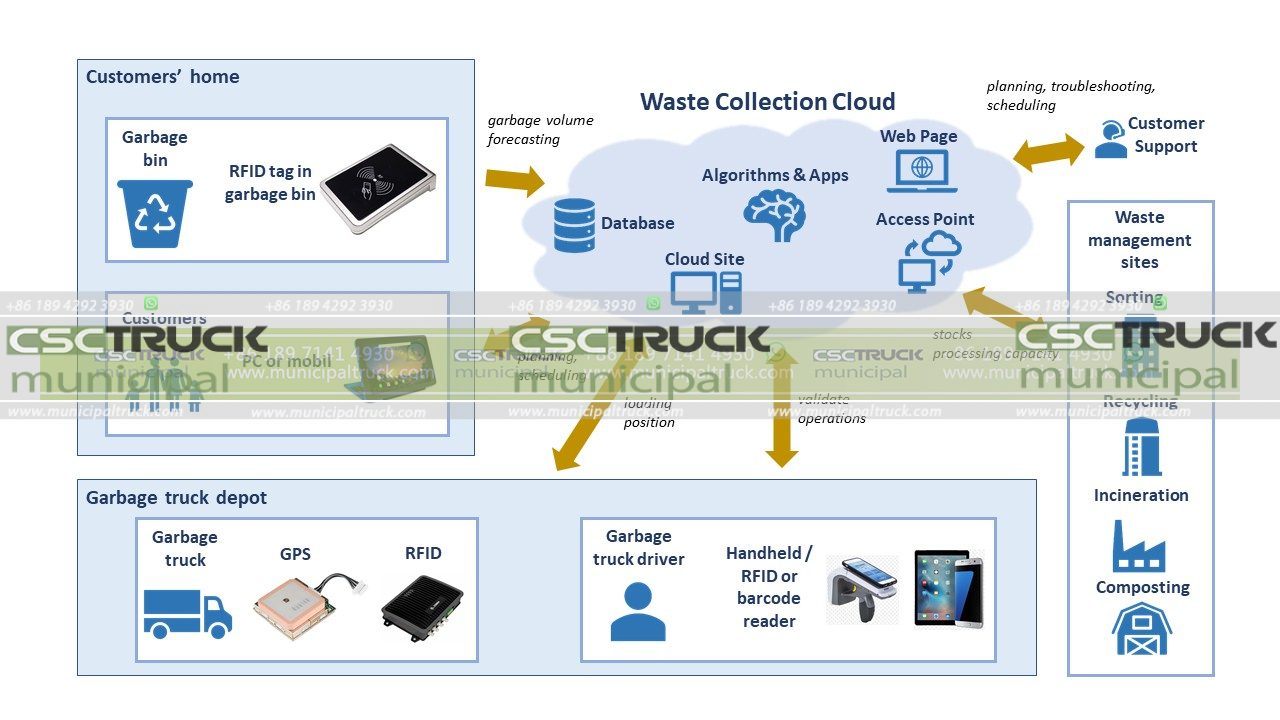 Data Collection and Analysis
Data Collection and Analysis
The first step in garbage truck routing and scheduling is collecting and analyzing relevant data. This includes gathering information about the location of garbage bins, the amount of waste generated in different areas, and any specific requirements for collection, such as recycling or hazardous waste. Advanced sensors and tracking systems may be used to monitor the fill levels of bins, allowing for dynamic route adjustments based on real-time data.
 Optimization Algorithms
Optimization Algorithms
Once the data is collected, optimization algorithms come into play. These algorithms consider various factors, such as the capacity of each garbage truck, the distance between collection points, and the time constraints for waste collection. The algorithms aim to find the most efficient routes and schedules that minimize travel distance and time while ensuring that all waste collection requirements are met.
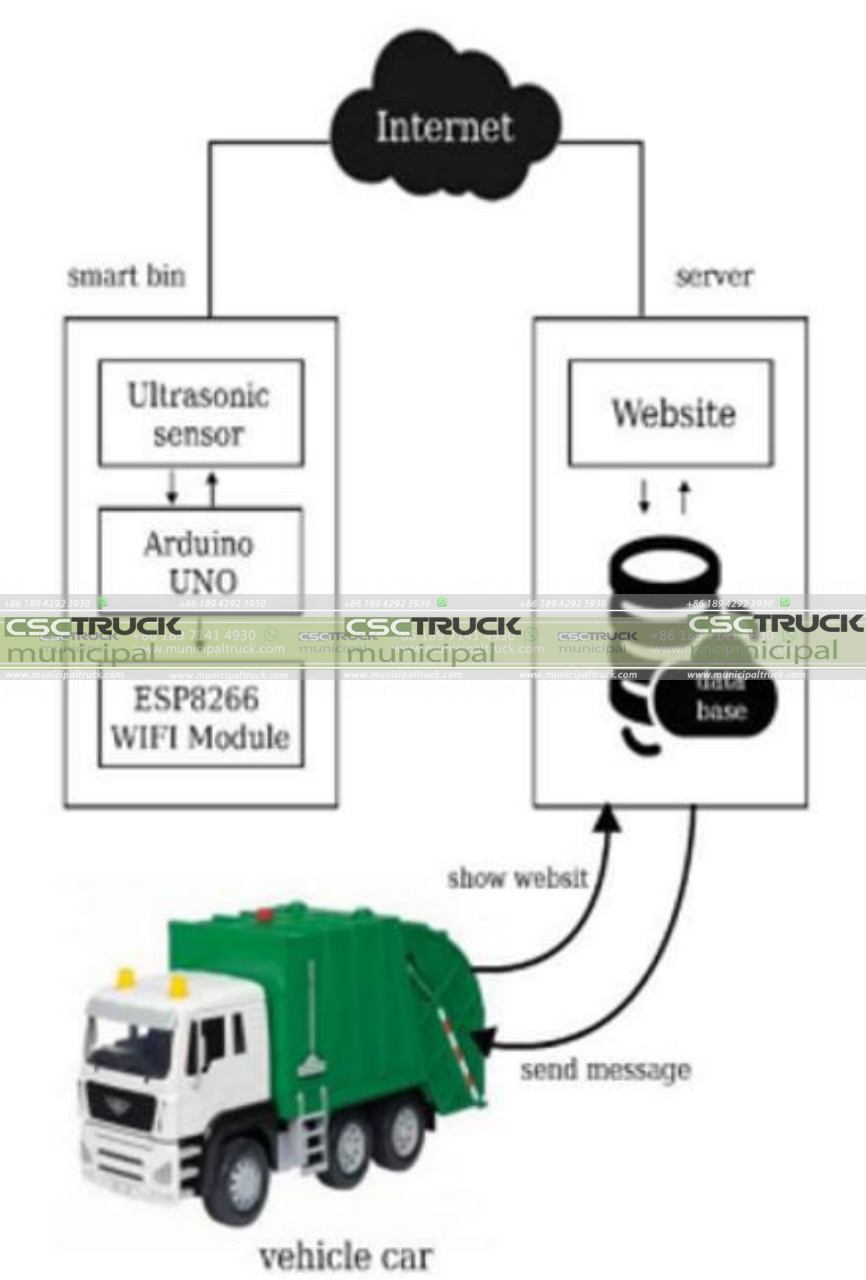
Route Planning
Route planning is a crucial aspect of garbage truck routing and scheduling. The algorithms generate optimal routes that take into account factors like traffic conditions, road restrictions, and the locations of disposal facilities. The routes are designed to minimize the number of left turns, as they often require more time and increase the risk of accidents. By optimizing the routes, garbage truck operators can save time, reduce fuel consumption, and enhance overall operational efficiency.
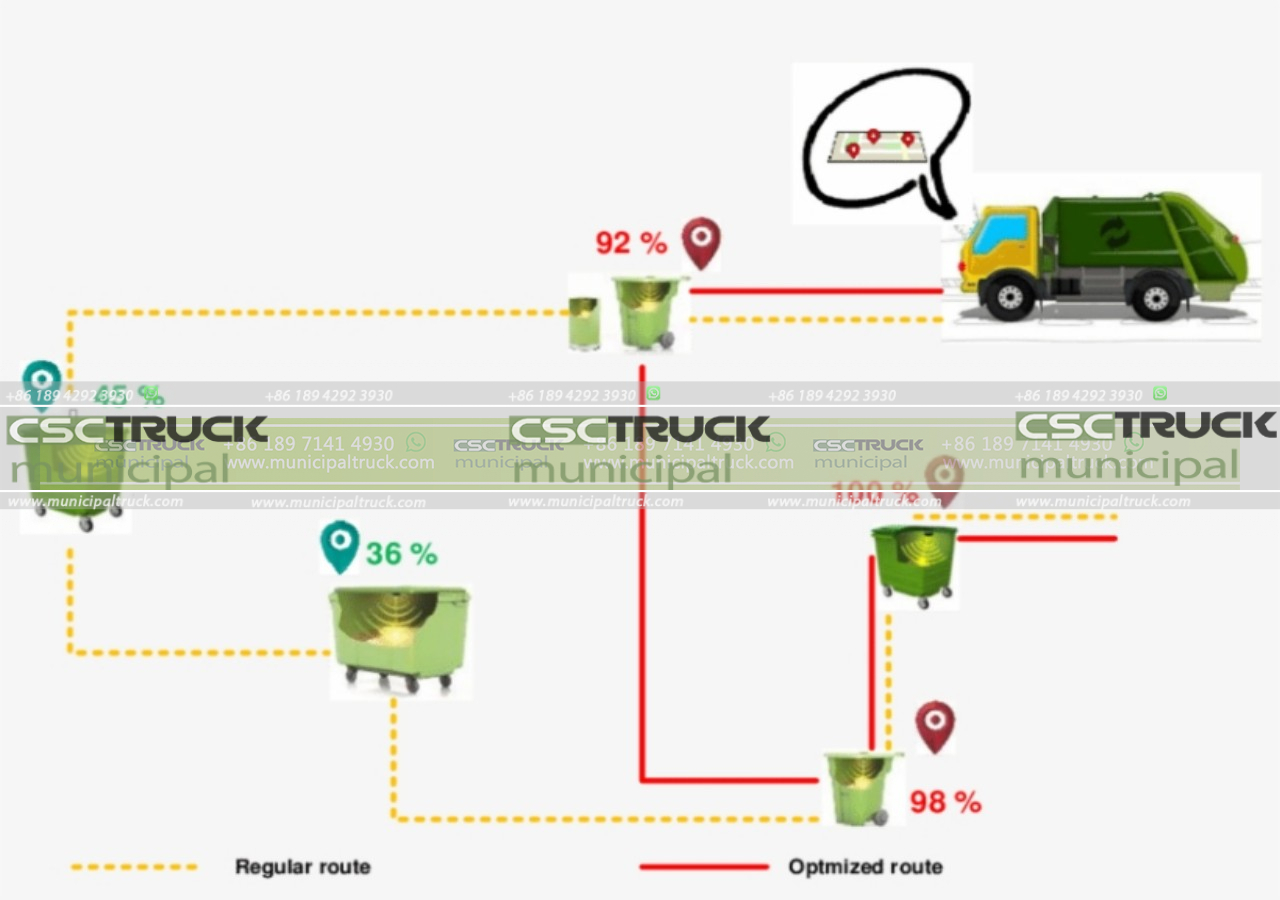 Scheduling and Dispatching
Scheduling and Dispatching
Once the routes are planned, the next step is to create schedules for garbage truck drivers. Scheduling involves allocating the routes to the available trucks and determining the optimal time for each collection. The scheduling process considers factors such as truck availability, driver shifts, and the expected waste generation patterns in different areas. Advanced software systems are used to automate this process, ensuring that the schedules are efficiently created and communicated to the drivers.
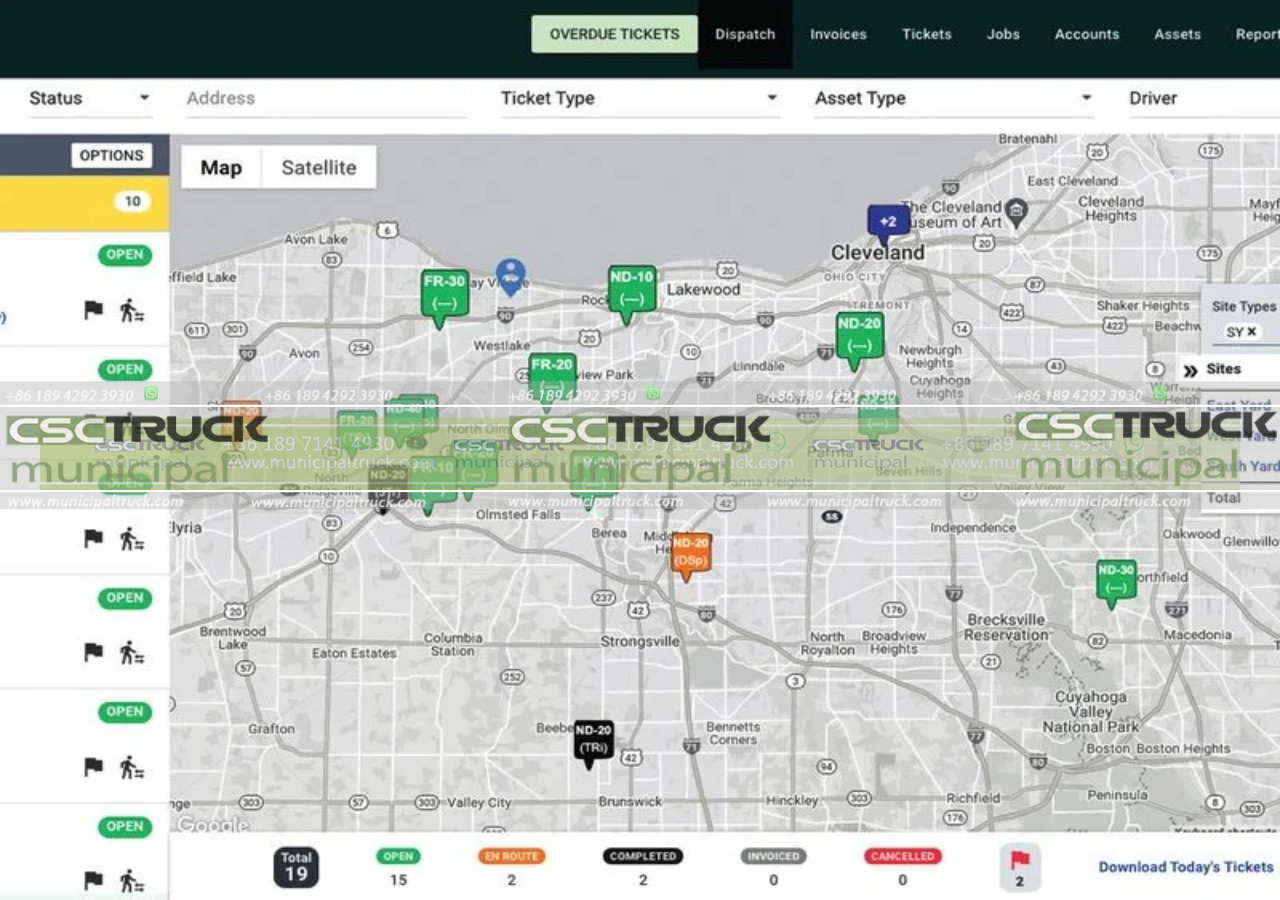 Real-Time Monitoring and Adaptation
Real-Time Monitoring and Adaptation
Garbage truck routing and scheduling are not static processes. Real-time monitoring is essential to track the progress of collection routes and identify any deviations or issues. GPS tracking and telematics systems enable operators to monitor the location and performance of each garbage truck. If a truck faces unexpected delays or if waste generation patterns change, the system can adapt the routes and schedules dynamically, ensuring that the collection process remains efficient.
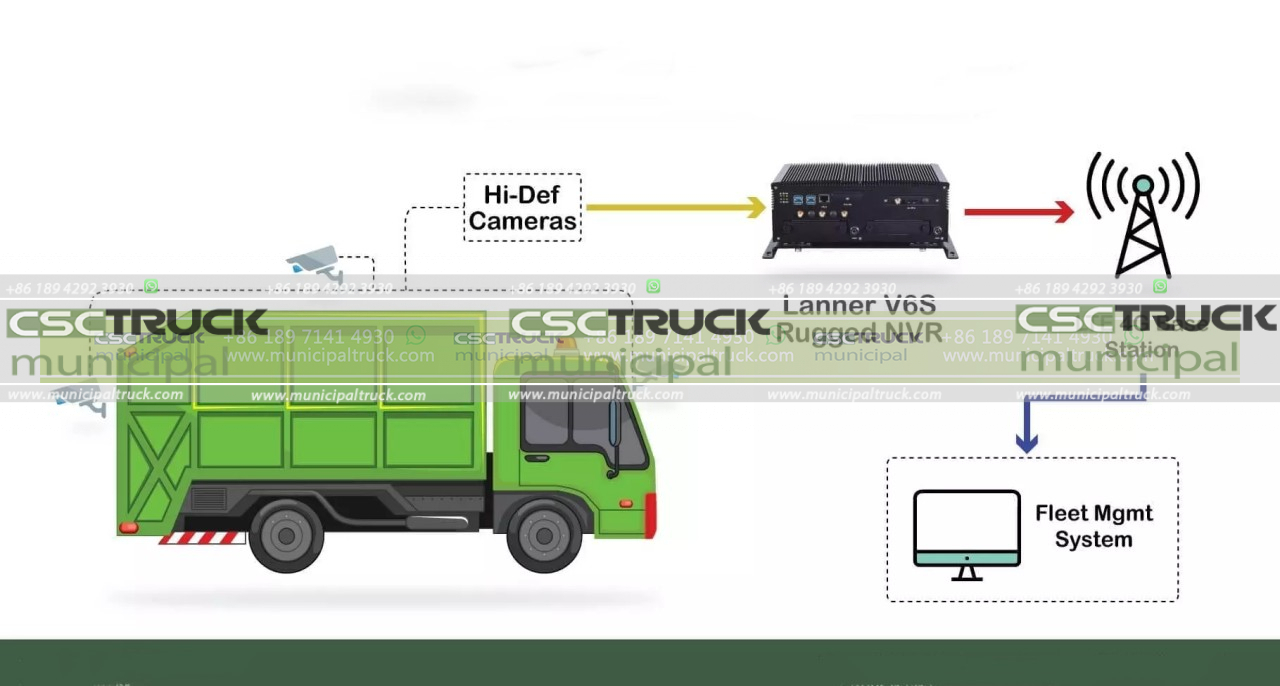
Benefits of Garbage Truck Routing and Scheduling
Implementing efficient garbage truck routing and scheduling brings numerous benefits to cities and waste management organizations:
Cost Reduction: Optimal routing and scheduling help minimize fuel consumption and reduce wear and tear on vehicles, leading to significant cost savings for waste management organizations.
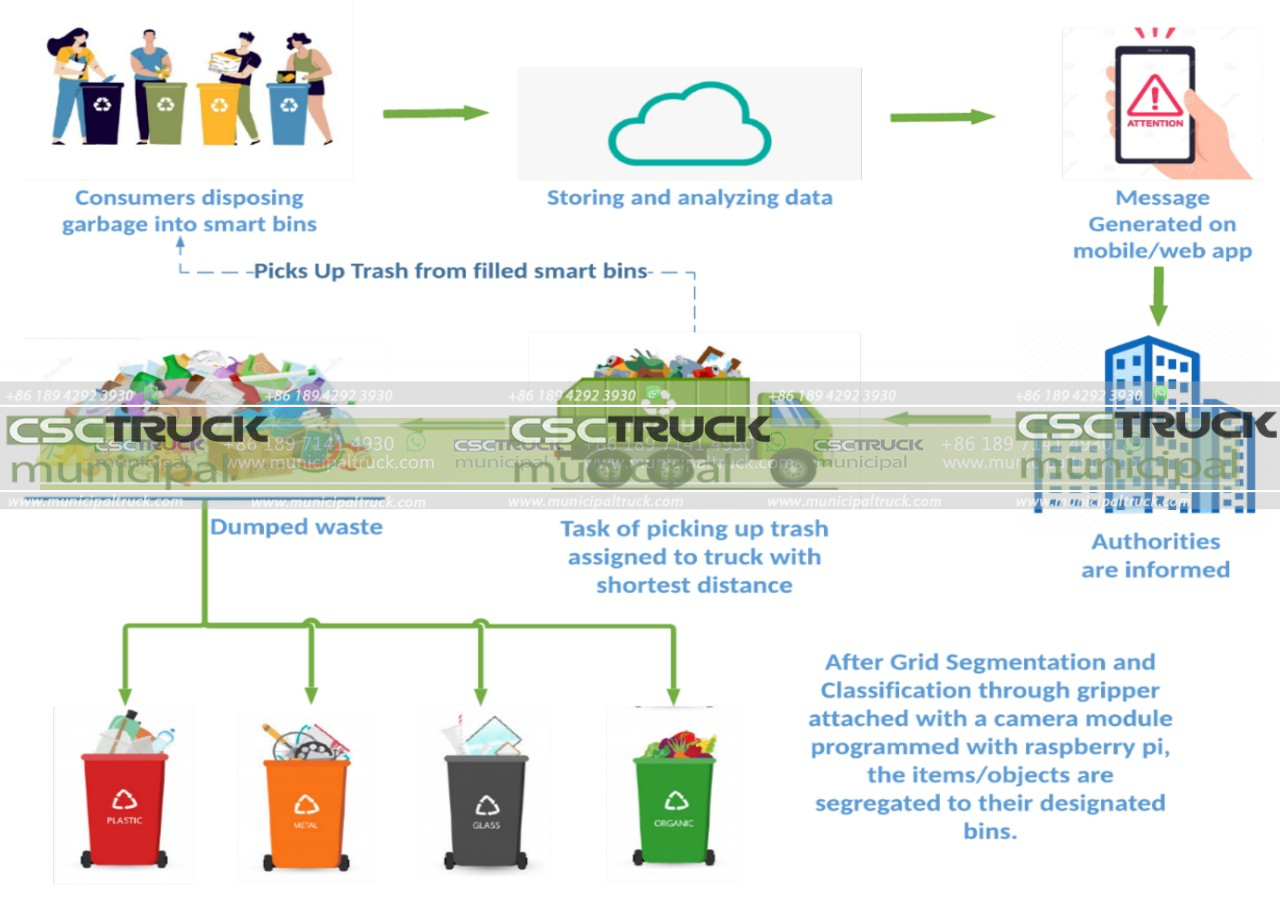 Environmental Impact: By reducing travel distance and fuel consumption, efficient routing and scheduling contribute to lower greenhouse gas emissions and a smaller carbon footprint.
Environmental Impact: By reducing travel distance and fuel consumption, efficient routing and scheduling contribute to lower greenhouse gas emissions and a smaller carbon footprint.
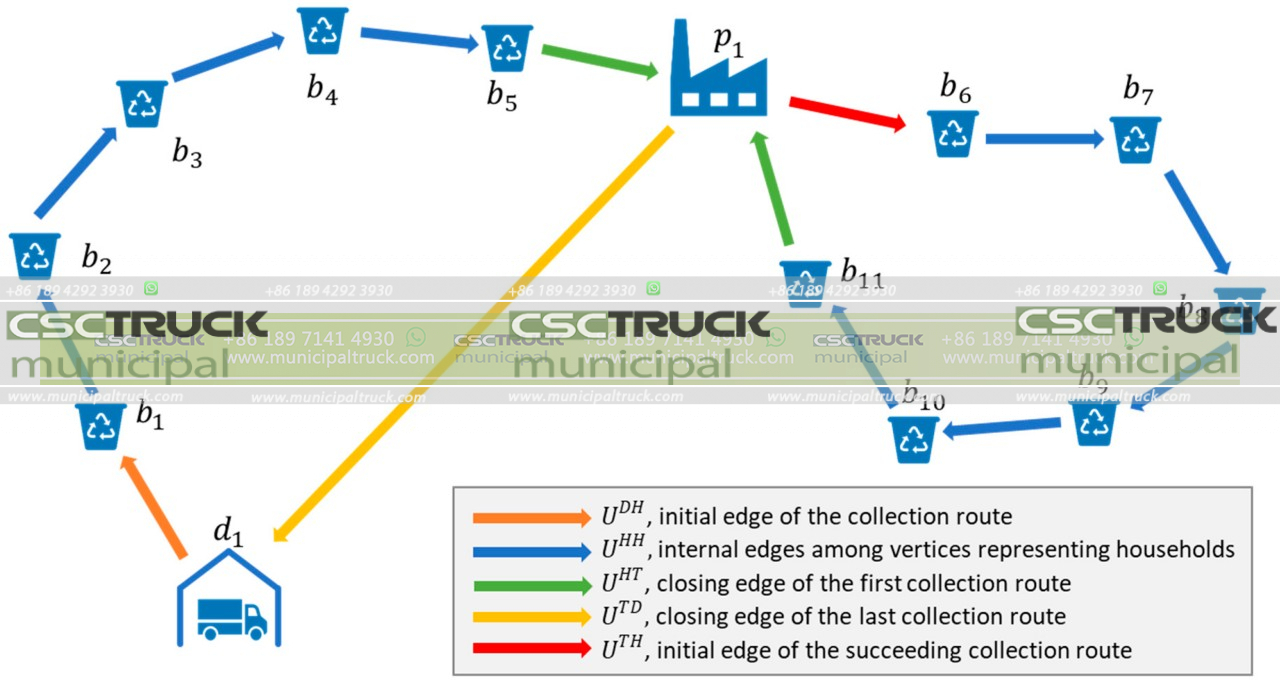
Improved Service Quality: Garbage truck routing and scheduling ensure that waste is collected promptly, improving service quality and customer satisfaction.
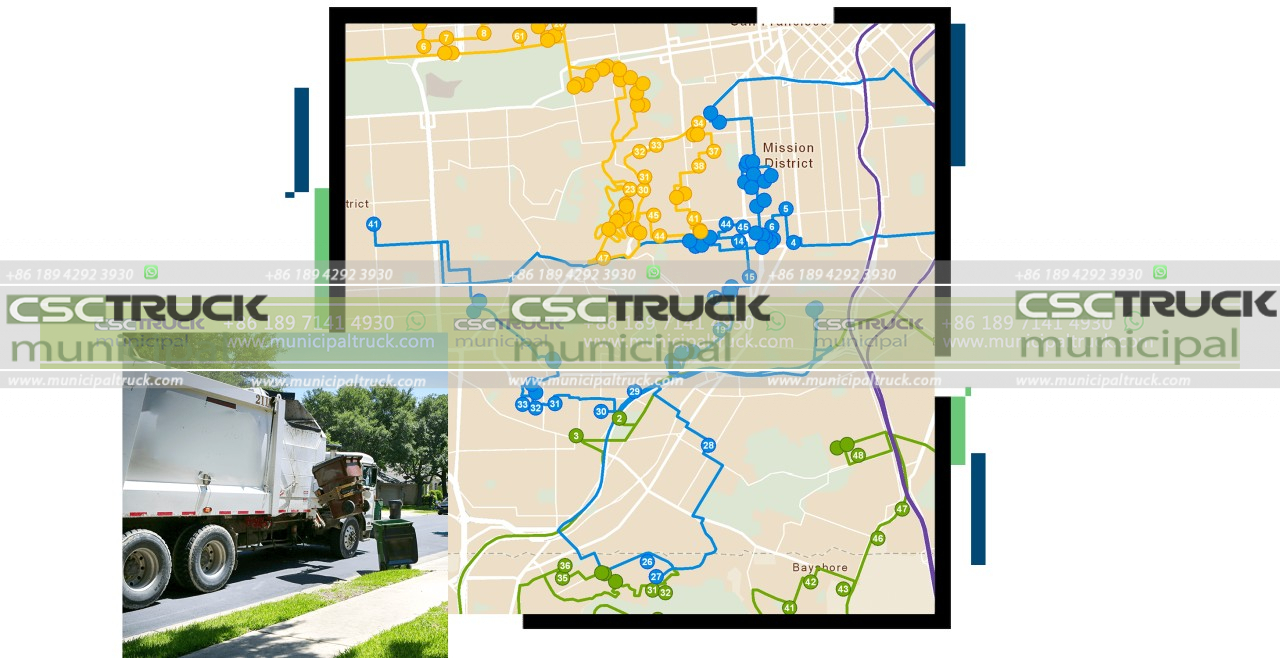
Resource Optimization: By allocating resources effectively, routing and scheduling help optimize the utilization of trucks, drivers, and other waste management resources.
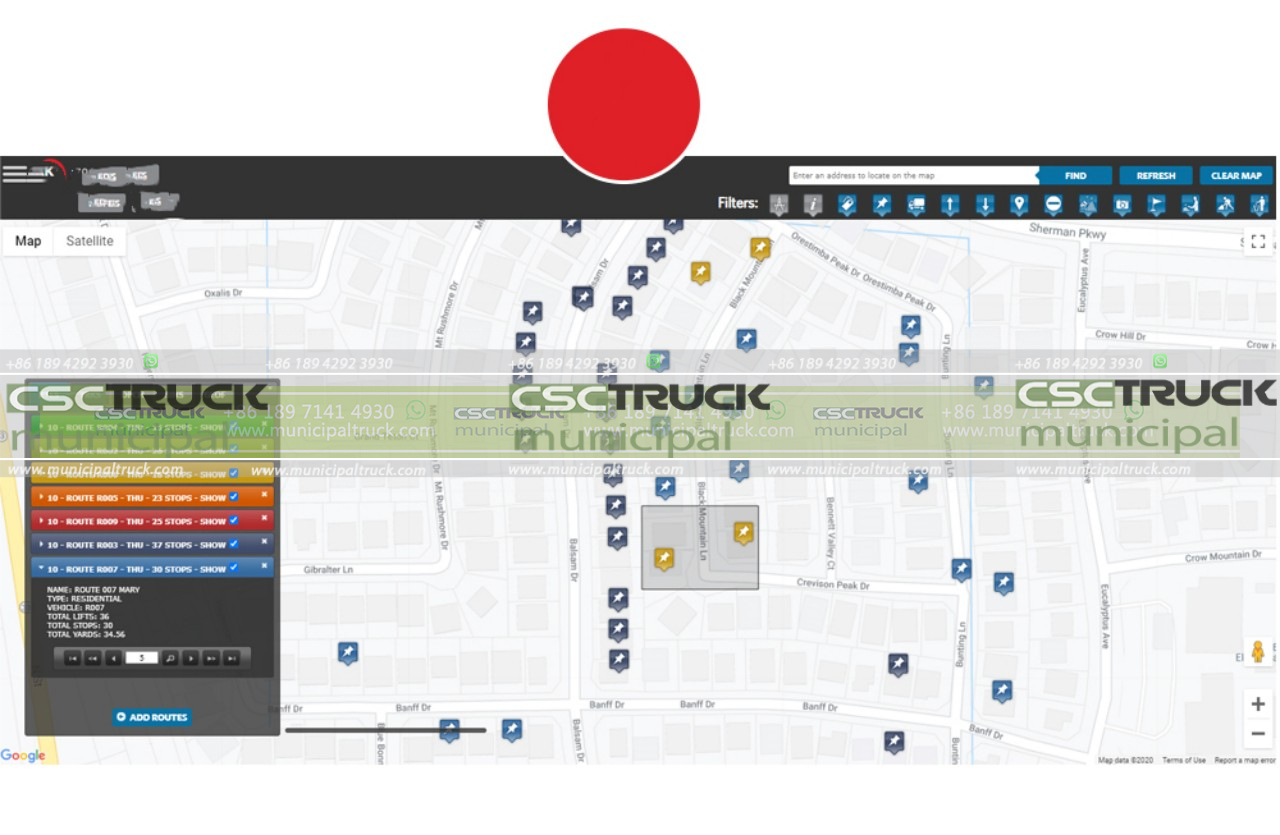 Safety Enhancement: Optimized routes and schedules can minimize the risk of accidents and improve driver safety by reducing unnecessary travel and providing drivers with clear instructions.
Safety Enhancement: Optimized routes and schedules can minimize the risk of accidents and improve driver safety by reducing unnecessary travel and providing drivers with clear instructions.
 Increased Efficiency: Efficient routing and scheduling streamline the waste collection process, enabling garbage trucks to cover more areas within the same timeframe. This leads to improved operational efficiency and productivity.
Increased Efficiency: Efficient routing and scheduling streamline the waste collection process, enabling garbage trucks to cover more areas within the same timeframe. This leads to improved operational efficiency and productivity.
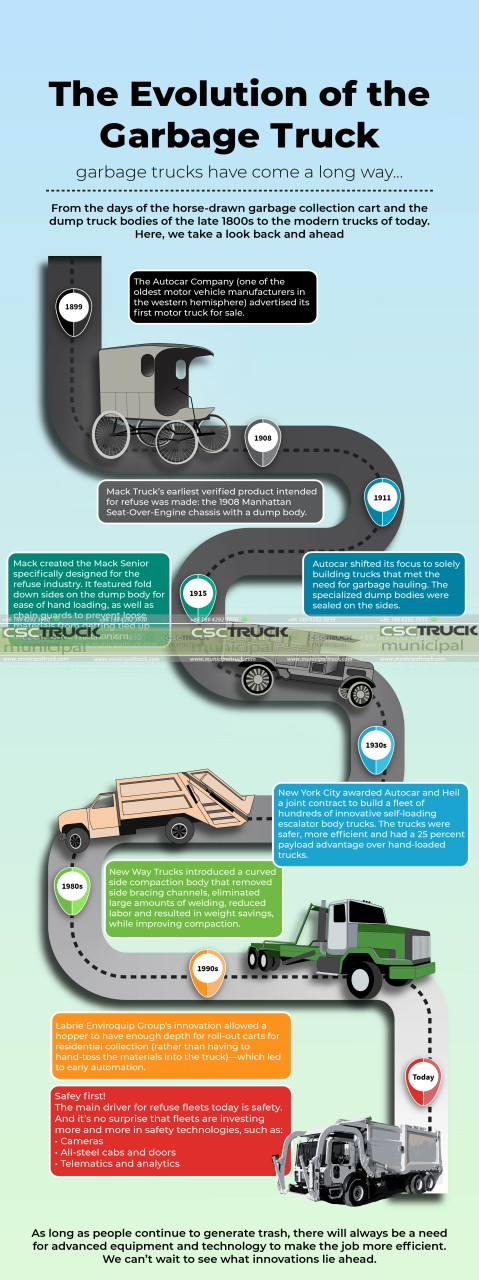
Flexibility and Adaptability: Real-time monitoring and adaptation capabilities allow for quick adjustments to routes and schedules in response to unexpected events or changes in waste generation patterns. This flexibility ensures that waste management operations remain efficient and effective.
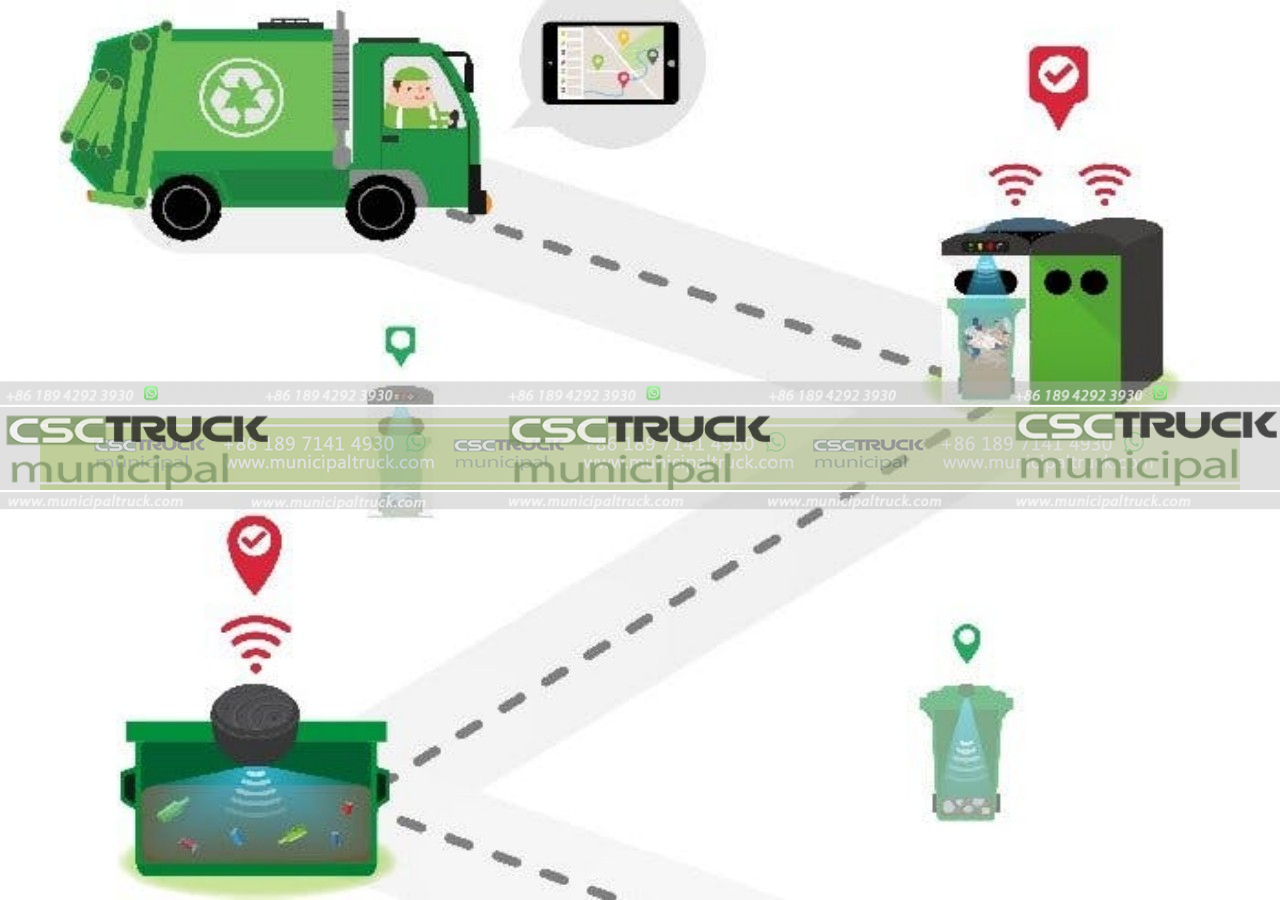 Data-Driven Decision Making: Garbage truck routing and scheduling rely on data analysis and optimization algorithms. By leveraging data, waste management organizations can make informed decisions, identify trends, and implement continuous improvements in their operations.
Data-Driven Decision Making: Garbage truck routing and scheduling rely on data analysis and optimization algorithms. By leveraging data, waste management organizations can make informed decisions, identify trends, and implement continuous improvements in their operations.
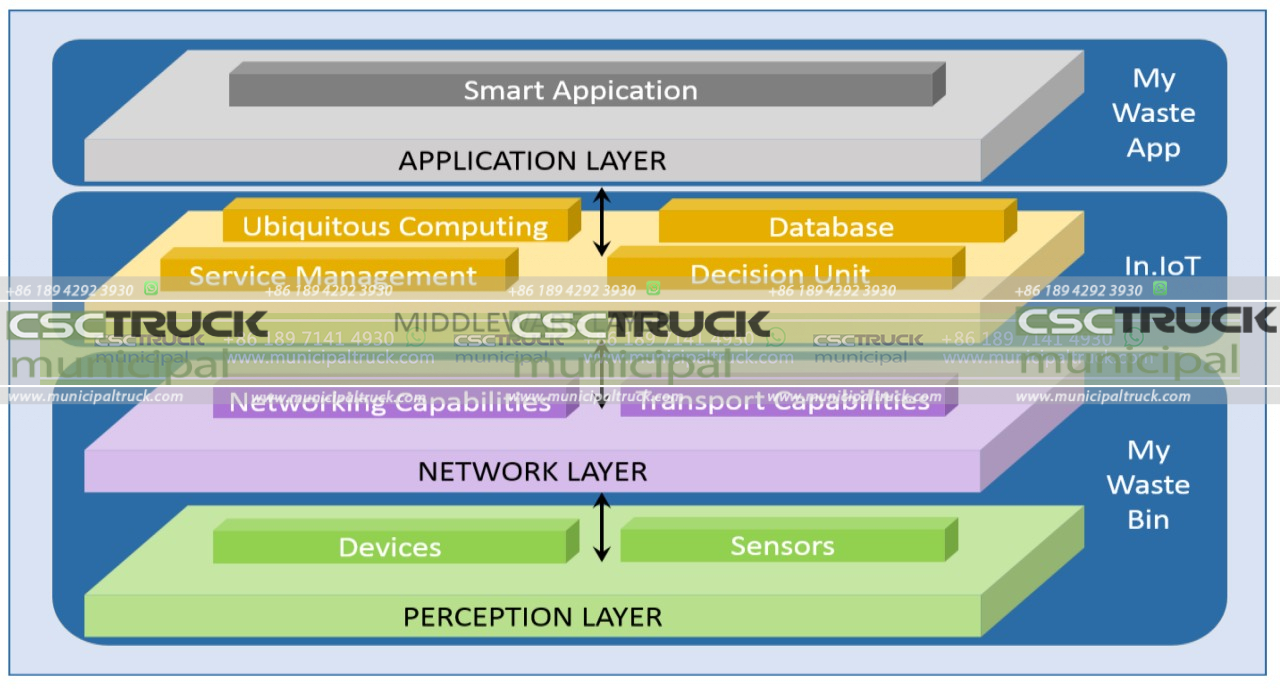 Community Health and Cleanliness: Efficient garbage collection reduces the likelihood of overflowing bins and litter, contributing to a cleaner and healthier community environment. Proper waste management is crucial for disease prevention and maintaining public health.
Community Health and Cleanliness: Efficient garbage collection reduces the likelihood of overflowing bins and litter, contributing to a cleaner and healthier community environment. Proper waste management is crucial for disease prevention and maintaining public health.
 Sustainability: Effective routing and scheduling support sustainable waste management practices by promoting efficient resource allocation, reducing environmental impact, and optimizing the overall waste management system.
Sustainability: Effective routing and scheduling support sustainable waste management practices by promoting efficient resource allocation, reducing environmental impact, and optimizing the overall waste management system.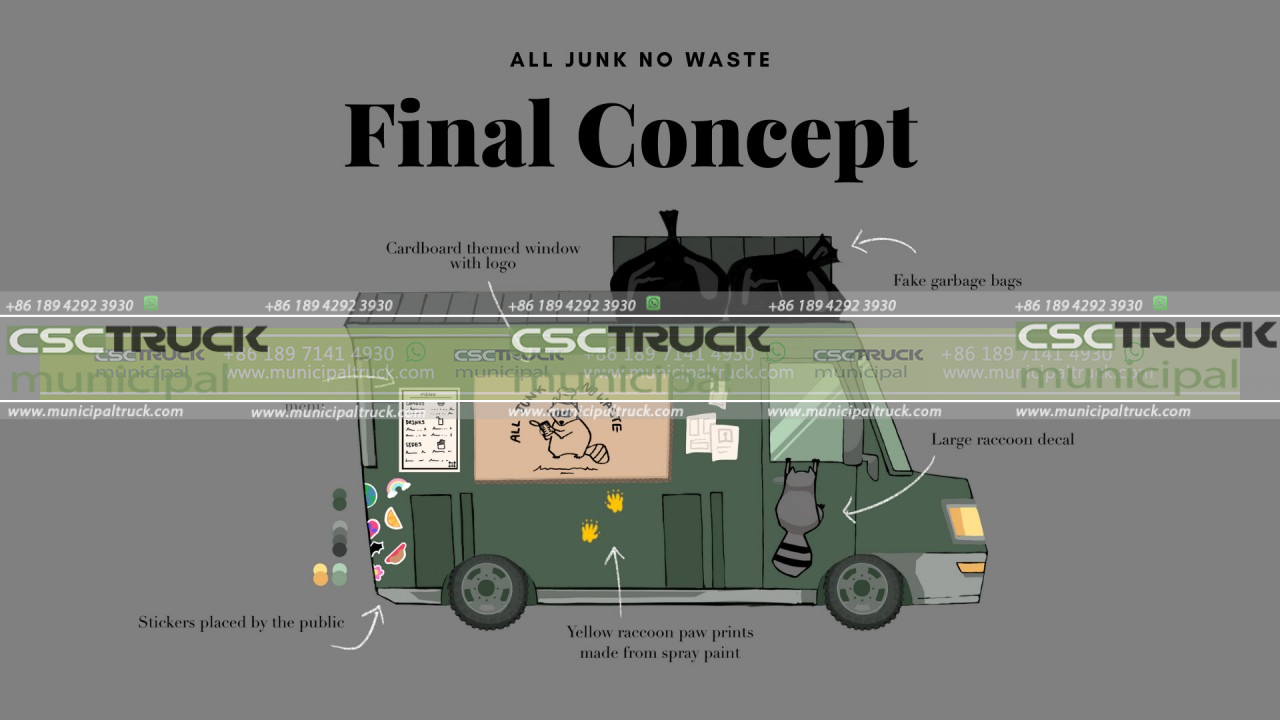
Challenges and Future Trends
While garbage truck routing and scheduling have made significant advancements in recent years, several challenges remain. These include navigating complex urban environments, addressing traffic congestion, and managing the increasing volumes of waste generated by growing populations. However, emerging technologies like artificial intelligence, machine learning, and smart city infrastructure offer potential solutions to these challenges.
Future trends in garbage truck routing and scheduling include the integration of Internet of Things (IoT) devices and sensors to monitor waste fill levels in real-time, the use of predictive analytics to anticipate waste generation patterns and the implementation of autonomous or semi-autonomous garbage trucks for increased efficiency and safety.
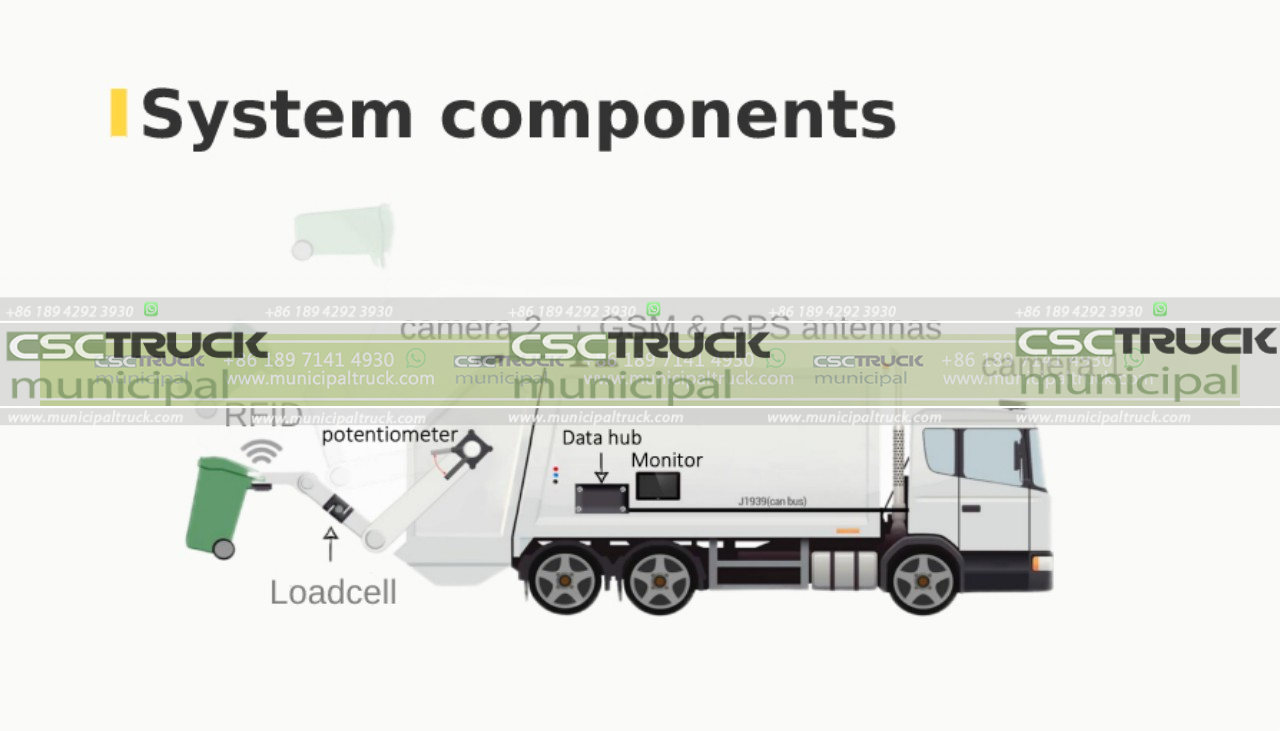
Conclusion
Garbage truck routing and scheduling play a crucial role in the efficient and effective management of waste collection. Through the use of advanced technologies, optimization algorithms, and real-time monitoring, waste management organizations can minimize costs, reduce environmental impact, and improve service quality. The future holds promising advancements in this field, ensuring that our communities continue to benefit from cleaner and healthier environments. By understanding the behind-the-scenes workings of garbage truck routing and scheduling, we can appreciate the complexity and importance of this essential service.
Contact us for this municipal truck or similar trucks: [email protected] Call us or What's APP us: +86 189 4292 3930
